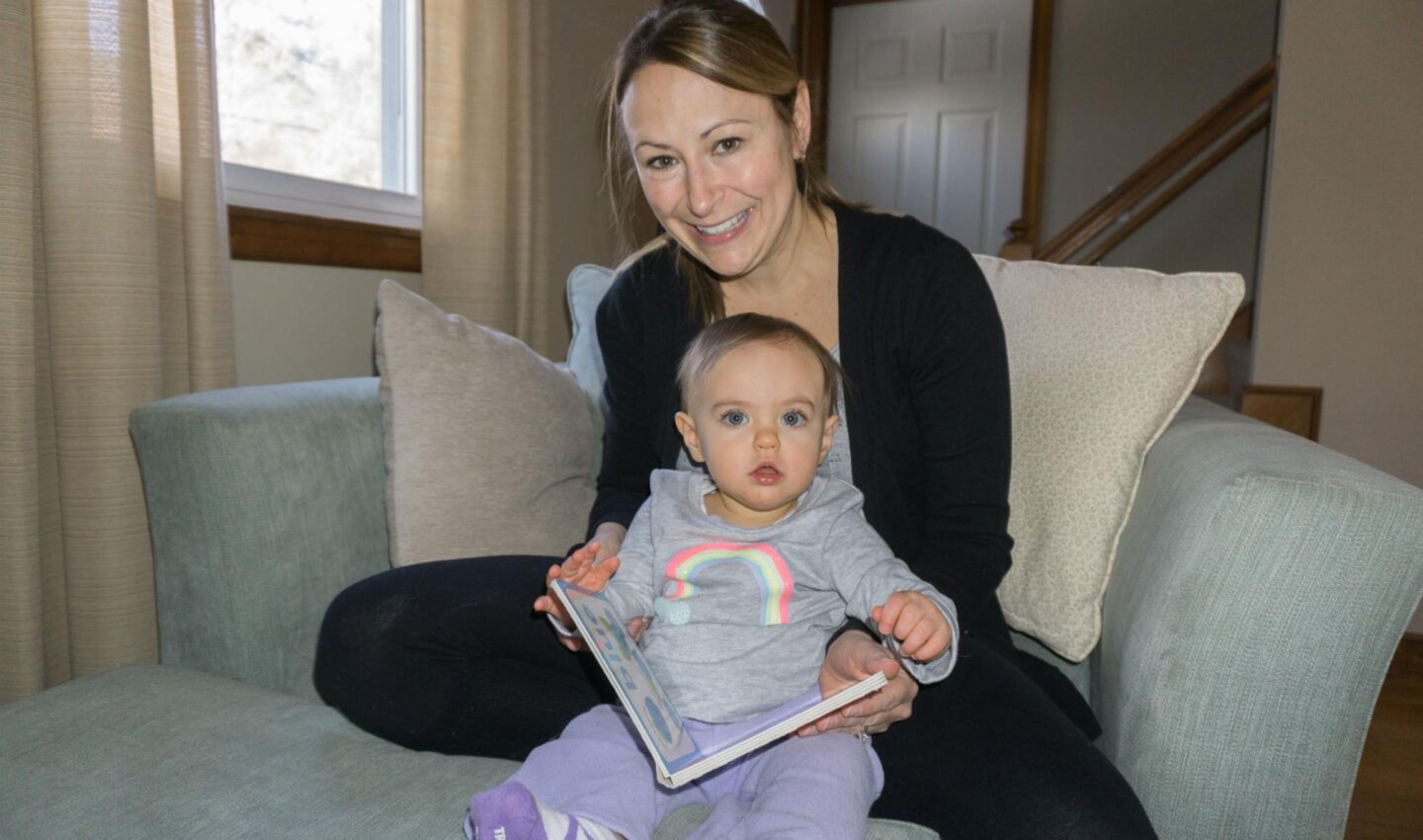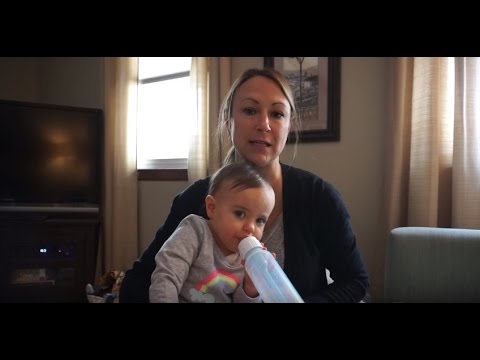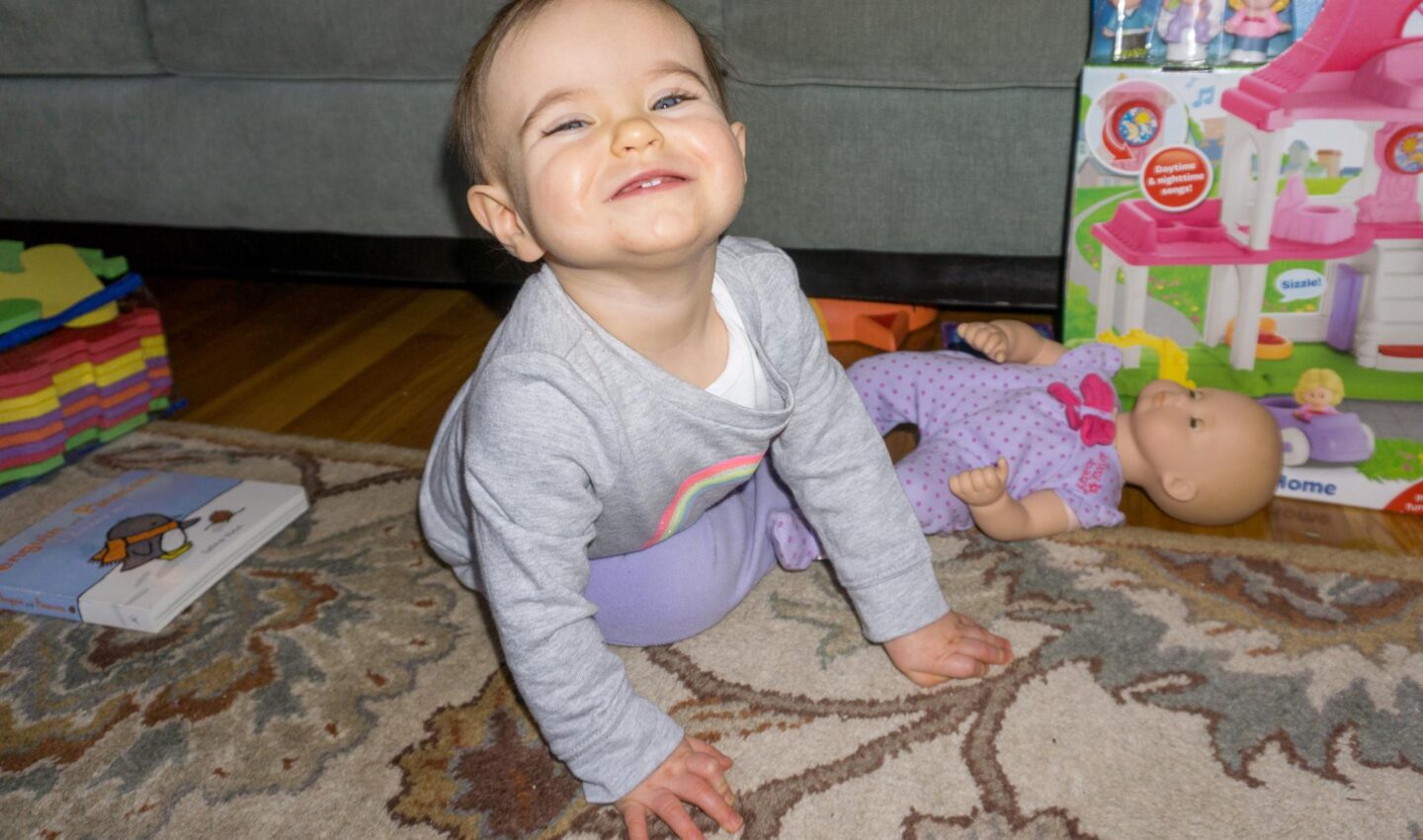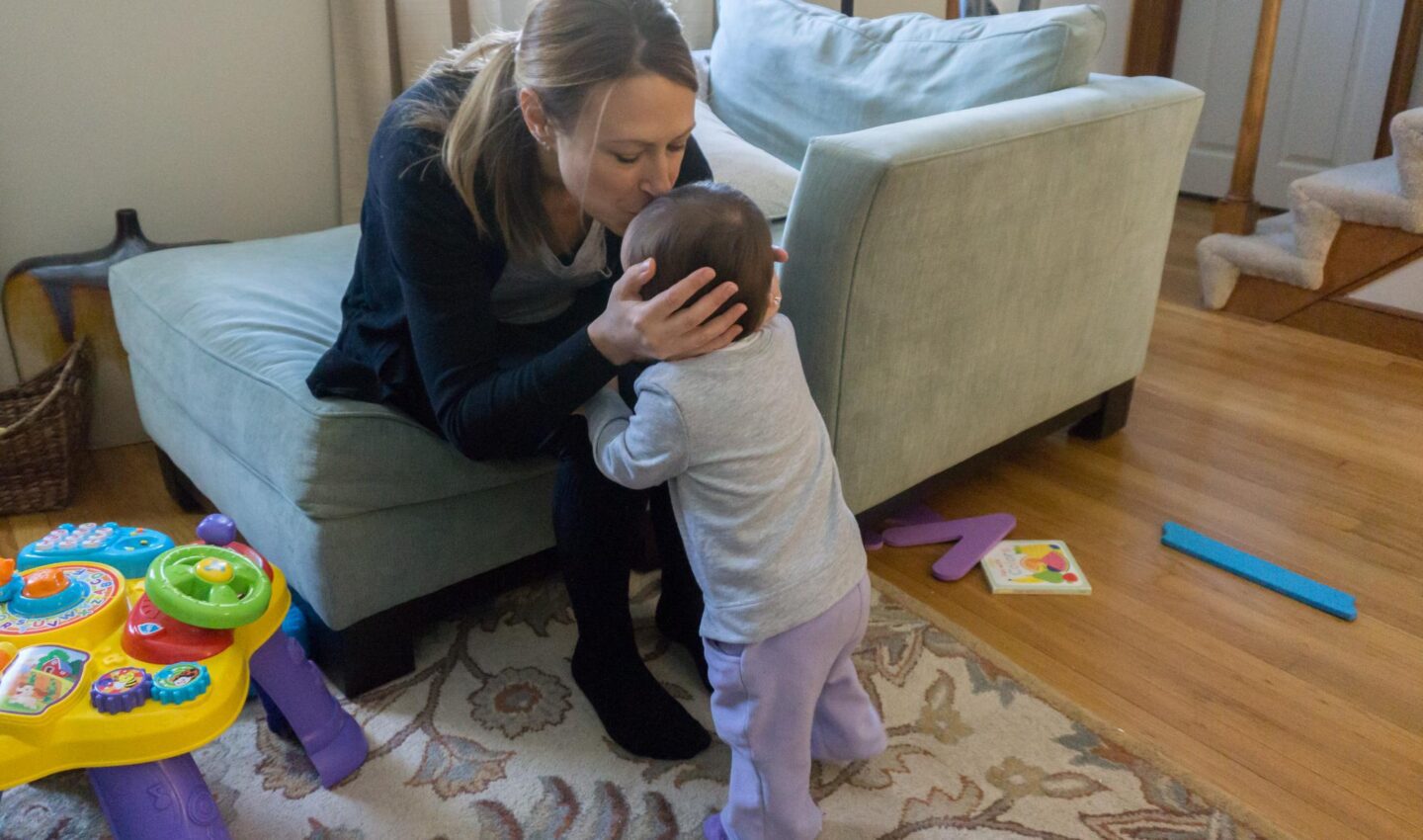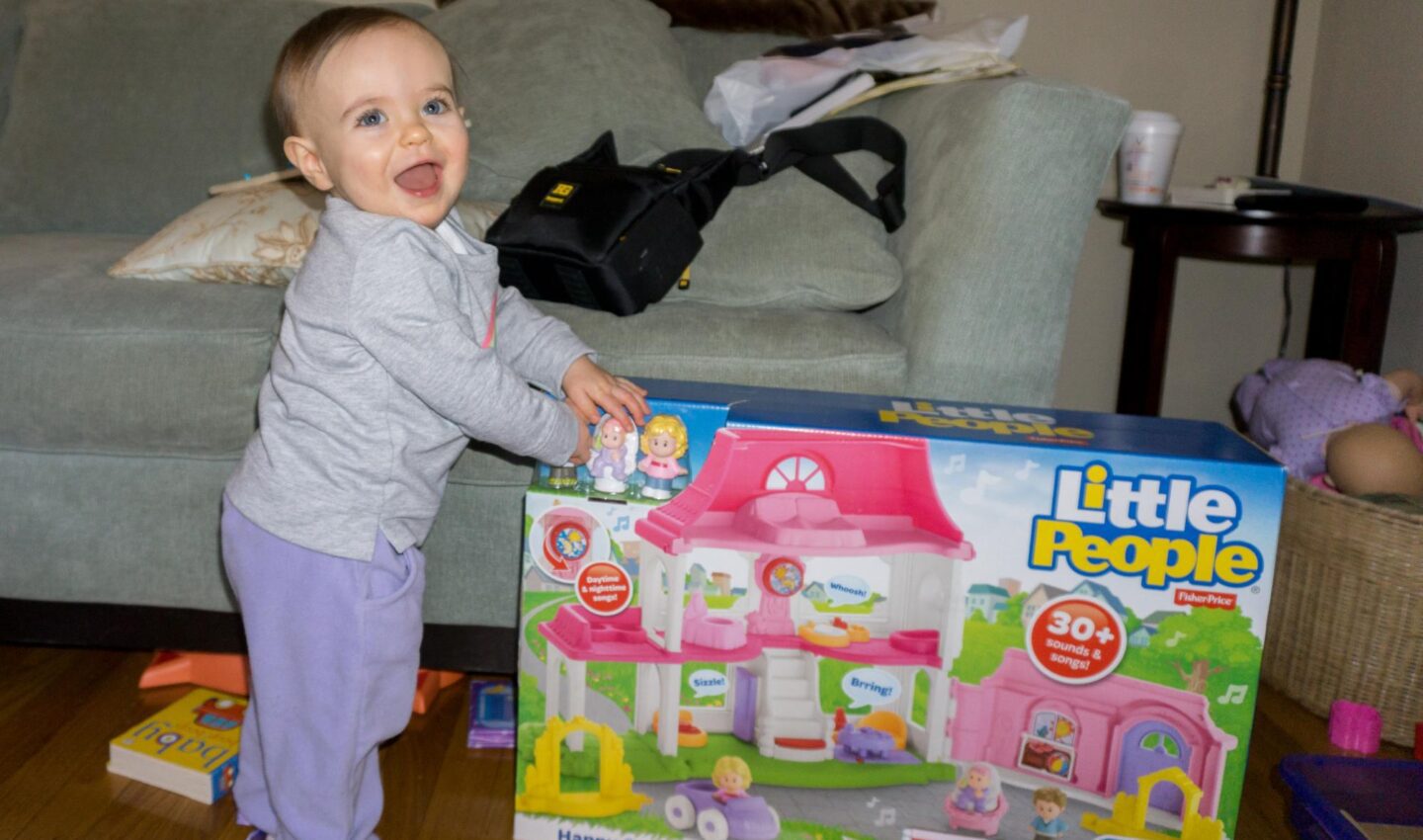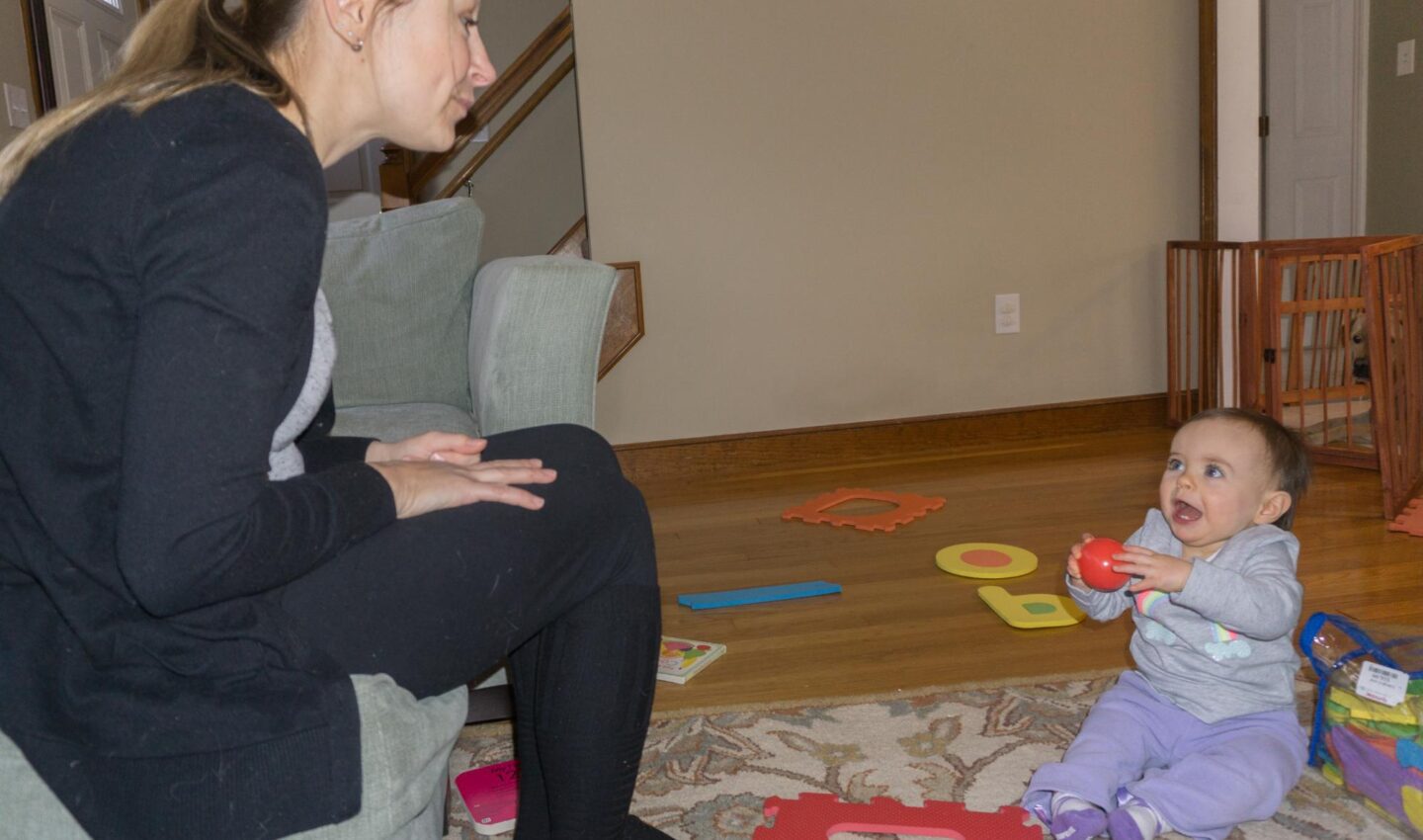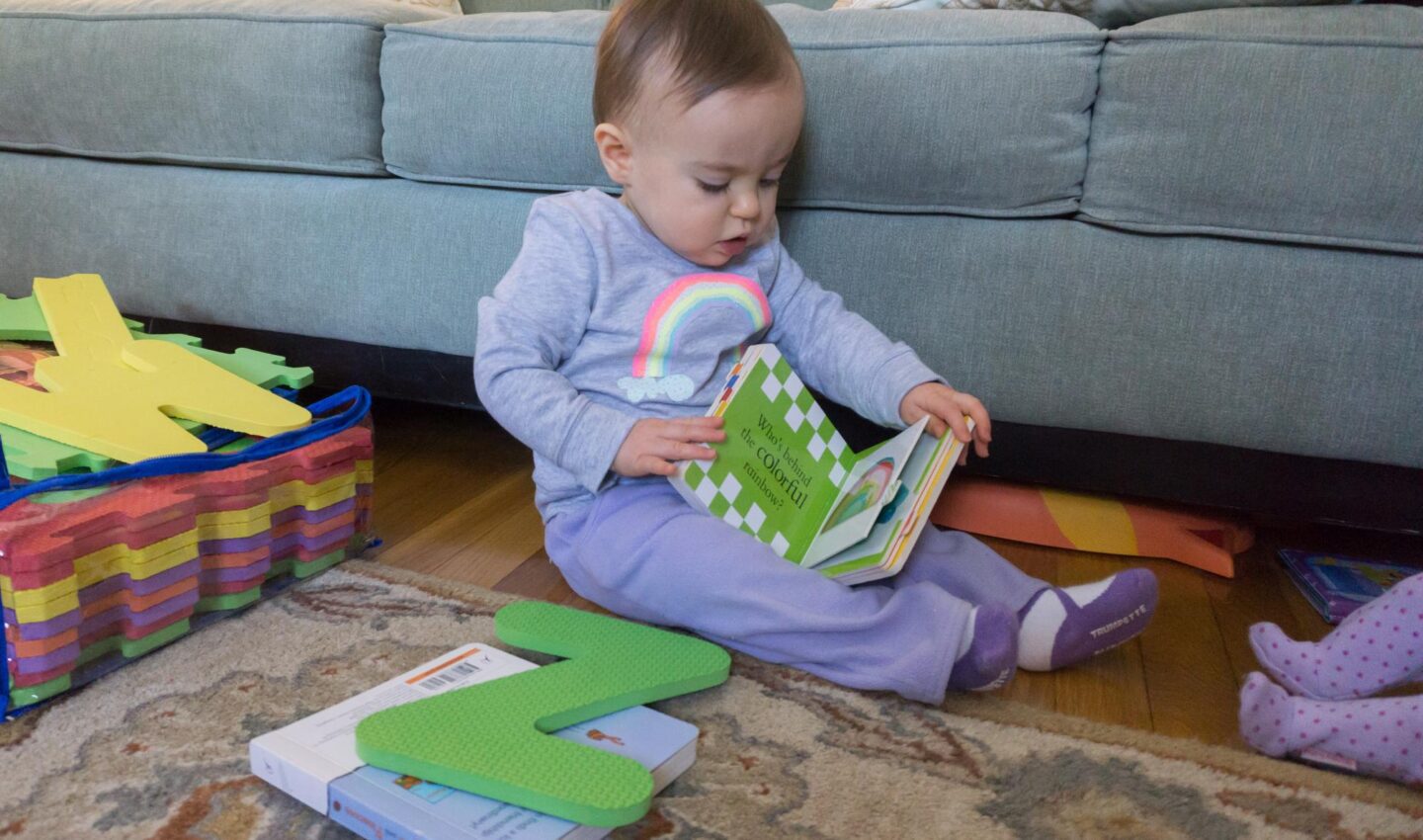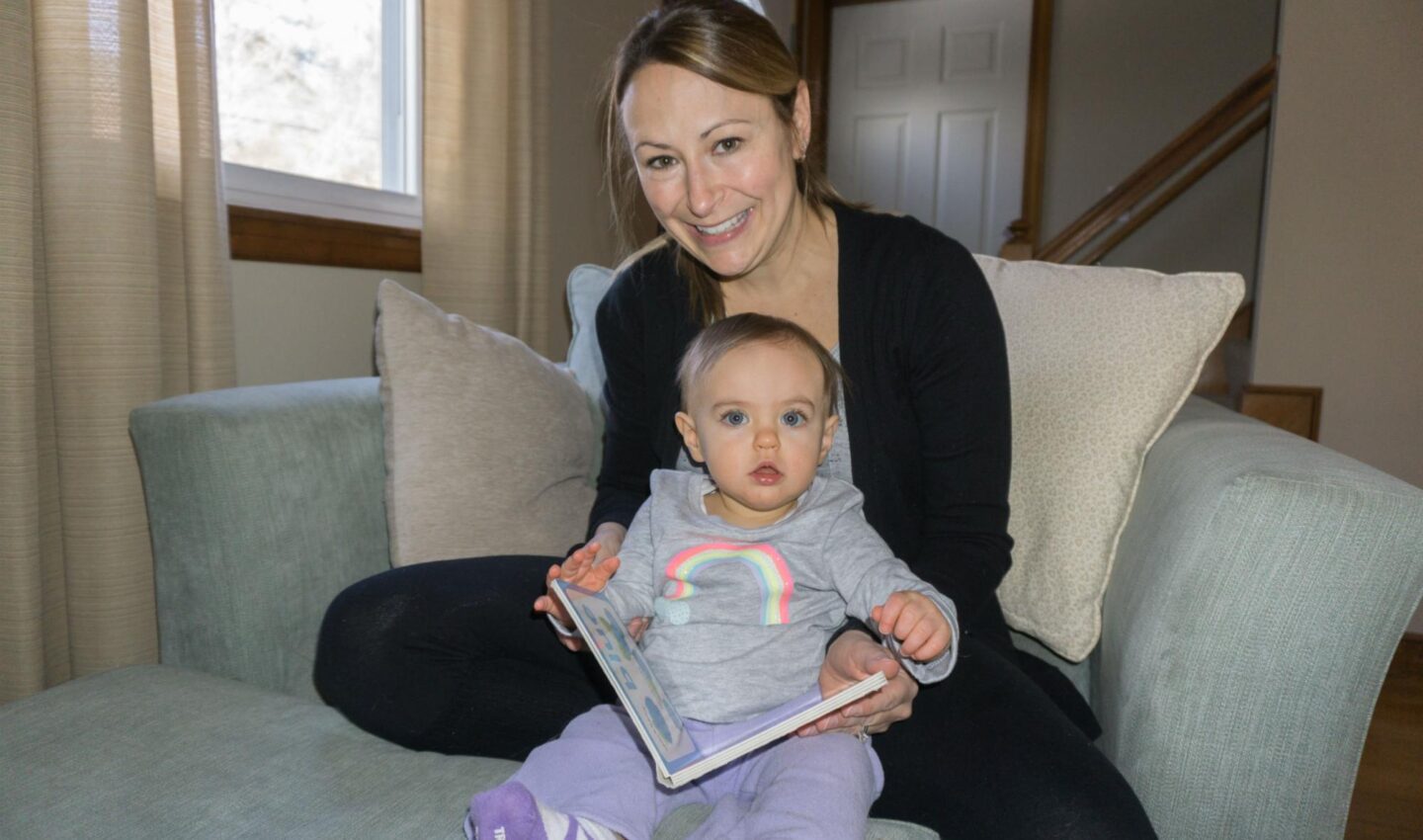To Juliana Salvi’s parents, it’s fitting that her first birthday follows a snowstorm. The little girl, who turns 1 today, was born during the January 2015 blizzard. Staff from the UMass Medical School New England Newborn Screening Program, who did not let the historic snowfall delay testing, have been credited with saving her life.
“When people ask how Juliana was diagnosed with galactosemia, I tell them you know that little heel prick that they do on the babies when they’re born, you probably know it as the PKU test, I said that was what diagnosed her. And when I tell people the story of how she was diagnosed after the snowstorm, and with the newborn screening staff taking it upon themselves to go out once the roads cleared, everyone says, ‘oh my God I just got goosebumps,’ ” Juliana’s mother, Charlene Salvi, said while holding her daughter in her lap.
“They can’t believe how good Juliana looks. She’s doing well. She’s healthy. And so far she’s met all her milestones,” Salvi said. “They can’t believe that simple heel prick test saved her life. And I think it’s one of the reasons why she’s doing well today.”
Juliana is a smiling toddler who is walking, babbling and fond of mischief. She likes to climb stairs while looking at her mother and laughing, and she adores sneaking out of the room when her mother tells her to stay. Charlene says she is grateful because she knows things could have turned out very differently.
“She still has all her specialists, but they’ve found no problems. This next year, that’s when we look for any issues,” Charlene Salvi said. Individuals with galactosemia can have problems with eyesight, speech and learning. The rare genetic disorder prevents the body from processing galactose, a sugar found in human and animal milk, milk-based formulas and many other foods and medicines.
It was Jan. 28 and Winter Storm Juno had just dropped as much as 3 feet of snow on parts of Massachusetts when Charlene and Mike Salvi took Juliana home to Mansfield. She was 3 days old and appeared healthy except for a case of jaundice.
That same day, the screening program’s delivery service announced that road conditions would prevent pickups of blood specimens from hospitals, and staff volunteered to drive and take public transportation to collect specimens and return them to the lab for testing.
“Our newborn screening program is committed to timely detection of treatable disorders that if not caught within the first few days of life can lead to adverse outcomes, and sometimes, death,” said Roger B. Eaton, PhD, director of the UMass Medical School New England Newborn Screening Program. “Like Juliana, many babies who are diagnosed through newborn screening appear healthy at birth. Routine screening is effective in identifying disorders that would go undetected.”
Shortly after 9 that evening, the Salvis learned of Juliana’s condition, removed all milk from her diet, and rushed her to the hospital for neonatal intensive care. Left untreated, Juliana could have suffered irreversible brain and organ damage, and the results can be fatal.
The condition means Juliana will remain on a special diet that restricts products with galactose for the rest of her life, but Charlene Salvi said her prognosis looks good and any future issues related to the disorder can be treated with therapy.
“I’m gratified to know that the efforts of my colleagues and I had such a positive impact on the life of Juliana and her family,” said Melody Rush, the lab technician who picked up Juliana’s sample. “We’re all so happy that newborn screening worked as it should and detected Juliana’s condition. It brings us joy to know that she is a happy, healthy little girl with a bright future.”
The New England Newborn Screening Program is staffed seven days a week. It receives and tests blood samples of babies from Massachusetts, Maine, New Hampshire, Rhode Island and Vermont. Samples are screened for 30 rare genetic disorders. UMass Medical School has been operating the Massachusetts program since 1997 in partnership with the Massachusetts Department of Public Health.

